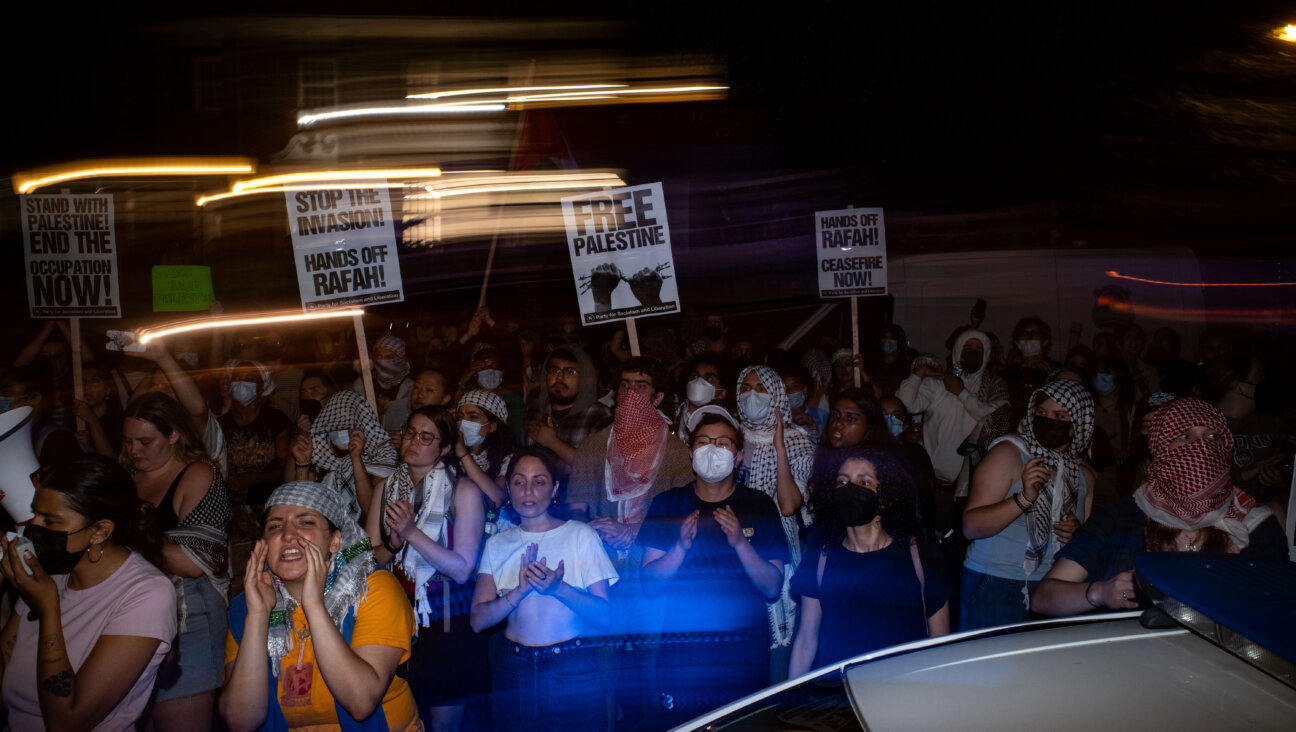THE FEATHERMAN FILE
Return to Sender: Bill Cotterell, a reporter for the Tallahassee Democrat, earned a one-week suspension for a private e-mail he sent to a reader that, according to an account of the affair by the Associated Press, “criticiz[ed] Arab nations for the way they’ve reacted to Israel.”
The Democrat’s executive editor, John Winn Miller, announced Cotterell’s suspension after receiving hundreds of complaints from those who read the correspondence courtesy of the Council on American-Islamic Relations. Miller said Cotterell’s remarks “run counter to many of the values we hold dearest, among them tolerance, diversity and inclusiveness.” Cotterell also apologized, writing that “My remarks were grossly inappropriate and do not reflect my views toward Muslim people.”
So what exactly did Cotterell say? Here is the offending paragraph, according to CAIR and the Democrat: “Except for Jordan and Egypt, no Arab nation has a peace treaty with Israel. They’ve had 54 years to get over it. They choose not to. OK, they can squat around the camel-dung fire and grumble about it, or they can put their bottoms in the air five times a day and pray for deliverance; that’s their business…. And I don’t give a damn if Israel kills a few in collateral damage while defending itself. So be it.”
Orlando Sentinel columnist Kathleen Parker, however, thinks Cotterell got a raw deal. “Cotterell’s remarks were clearly in bad taste, which is of course why some people find them funny,” she wrote Wednesday. “And they were intemperate. Sometimes that happens when people threaten and insult you,” as did Cotterell’s e-mail correspondent. “But keep in mind, it was also an e-mail exchange. All of us write things in e-mails —or we used to — that we don’t intend to share with the world. The Democrat’s decision to suspend Cotterell… frankly smacks of caving in to special interests at the expense of free speech.”
* * *
End of Days: A despairing glimpse into Israel’s Megiddo Prison appears in the January/February issue of The Pennsylvania Gazette, the alumni magazine of the University of Pennsylvania. Gary Rashba, a Penn graduate who has lived in Israel for nine years, describes his army reserve duty as a guard at Megiddo, a military compound for “security prisoners” — as Rashba describes them, the inmates are “the accomplices who aided and abetted in the terror.”
The prison takes its name from the nearby ruins of Megiddo — or Armageddon, as the biblical city is known in English. “It struck me as fitting that the prison is located on the site of Revelation’s showdown with evil, since as far as I was concerned, the prisoners were evil incarnate. They are the reason I have been forced to live in fear for the past two years of being in the proverbial wrong place at the wrong time….”
Rashba describes the relative chaos of the prisoners’ tent encampment and Israel’s “laissez-faire” policy that allows the prisoners to do mostly for themselves. He is also appalled to find their tents decorated with pictures of suicide bombers. Accompanying a busload of men to military court, where they are caged in cramped holding cells, Rashba writes that he “started to feel almost sorry for them.” But readers expecting to find that moment of first-person epiphany, when the essayist has the human encounter that strips away his preconceptions, are in for a disappointment.
“Then I would remember that these are people who would undoubtedly like to kill me or any other Jew simply for being Jewish. The expended tear-gas grenades dangling from the prison fencing like Christmas ornaments testify to the fact that their behavior can change from submissive to violent in the blink of an eye. From the perimeter guard towers overlooking the road I could see pieces of charred and twisted metal — all that was left of a recent suicide bombing (or, more accurately, a homicide bombing) that took 16 Israeli lives. The prisoners reportedly cheered the explosion.”
* * *|
Not in Our Name: The New York Times’s Clyde Haberman offered an unusual sequel to the story of Abraham Zelmanowitz, an Orthodox Jew who stuck by the side of his wheelchair-bound friend and as a result was killed in the collapse of the World Trade Center’s north tower on September 11 (See Forward, September 27, 2002). In the January 7 issue of the Times, Haberman reports that Zelmanowitz’s sister, 71-year-old Rita Lasar, is an anti-war activist and one of approximately 50 members of a group called Sept. 11 Families for Peaceful Tomorrows.
Lasar delivers speeches around the country protesting plans for a war on Iraq. “I don’t want terror rained on other people to avenge my brother’s death,” Lasar says. “And I don’t spend any time thinking about Osama bin Laden and Al Qaeda, and what I want to do to those people.”
According to Haberman, Lasar “does not pretend that she and her brother were close. They weren’t. She was the atheist ‘black sheep’ in the family. He was an Orthodox Jew. (So much for the lame-brained bit of malice that Jews were warned to stay home on Sept. 11.)”
A message from our CEO & publisher Rachel Fishman Feddersen

I hope you appreciated this article. Before you go, I’d like to ask you to please support the Forward’s award-winning, nonprofit journalism during this critical time.
At a time when other newsrooms are closing or cutting back, the Forward has removed its paywall and invested additional resources to report on the ground from Israel and around the U.S. on the impact of the war, rising antisemitism and polarized discourse.
Readers like you make it all possible. Support our work by becoming a Forward Member and connect with our journalism and your community.
— Rachel Fishman Feddersen, Publisher and CEO
























